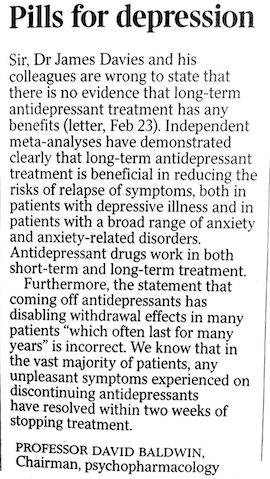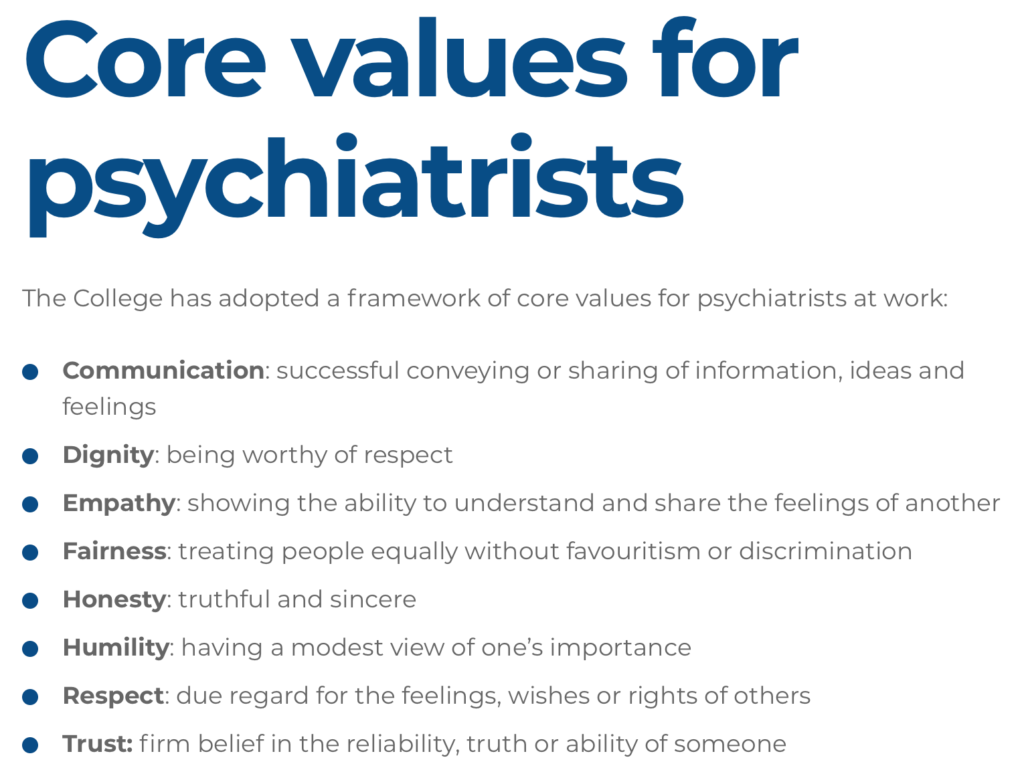Editor’s note: Following Evgeny Legedin’s blog describing attempts to silence his challenges to psychiatric practice we received a number of responses, which we will be publishing over the next few weeks. This one is from retired psychiatrist Dr Peter Gordon.
***
In the digital age we are all too well aware that the ease of communication afforded by social media can result in comments that we would not dream of making were we sitting beside one another. Following the recent Mad in the UK post by junior psychiatrist Dr Evgeny Legedin, the exchanges that I read on social media left me distressed. The language used and the challenges made were often neither respectful nor constructive. The consequence generally seemed to be that divides became further entrenched. The space for shared listening and understanding felt diminished.
I worked as an NHS psychiatrist for over 25 years and have always been of the view that openly asking questions of prevailing approaches is vital to science. If barriers come in the way of such approaches then learning will be limited. I used to write about the harms (real and potential) of over-medicalisation, not just for the discipline of psychiatry but for medicine as a whole. I passionately supported realistic medicine and the need for fully informed consent. I did my best to explore what current evidence might support and where it was limited (such as in prescribing of psychiatric drugs in the longer term). I invested a significant amount of my personal time in campaigning for greater openness and transparency in relation to potential competing interests across medicine.
In September 2013, I petitioned the Scottish Parliament for a Sunshine Act for Scotland. A Sunshine Act would make it mandatory for healthcare workers, academics and scientists to declare fully any payments including payments in kind. A single, searchable, independent register, underpinned by statute would ensure transparency, promote scientific integrity and reduce the potential for harm. My experience was that raising this issue generated significant defensiveness amongst the medical and scientific community. Some of the responses I encountered, both in the real world and the digital one, disappointed me in their lack of respect for professional values.
I have always looked to my former College here and done my best to follow their “core values”:
These “core values” have been in place through most of my Consultant career. They were updated by the College earlier this year and now appear as a subset of the C-I-R-C-L-E values.
When I read some of the social media exchanges – including by mental health professionals – which followed Dr Legedin’s post, I was reminded that, over a number of years, people have told me that having witnessed such interactions, they have been frightened to seek psychiatric help. The President of the Royal College of Psychiatrists has also commented on the damaging impact of unthinking social media behaviour by some professionals. This is why I wrote the following letter to the President, CEO, and President-Elect of the Royal College of Psychiatrists:
26 April 2020.
Dear Professor Burn,
I note that you have retweeted this today:
Dr Tyler Black, MD to Dr Evgeny Legedin (and to one other), 26-April 2020 “I really hope that when people link studies and cite them, they would also read them and understand them. Yet another important lesson in critical reading for Psychiatric trainees. If you’re going to cite the paper, you shouldn’t be selective and claim certainty.”
 This statement reminded me of the letter that you submitted to the Times with Professor David Baldwin [published 25 February 2018]. You will remember that I and many others were dismayed by the “certainty” of the “selective claims” quoted. That you have shared on social media this advice to trainees is entirely understandable but it is concerning that such advice has not been followed by all practising psychiatrists.
This statement reminded me of the letter that you submitted to the Times with Professor David Baldwin [published 25 February 2018]. You will remember that I and many others were dismayed by the “certainty” of the “selective claims” quoted. That you have shared on social media this advice to trainees is entirely understandable but it is concerning that such advice has not been followed by all practising psychiatrists.
You are also aware that I and many others have had longstanding concerns with the online behaviour of a number of psychiatrists whose Tweets you regularly share. You have expressed concern about this yourself, saying “What is the point of all this nastiness?” My ongoing concern is that by retweeting certain individuals you, as President, fail to discourage the nastiness.
This particular Tweet, that you have chosen to share, might also appear to be a critical response to the publication of Unconventional Views About Mental Health
I am writing in the hope that the College leadership will reflect on its approach to members who some might consider “unconventional”.
Kind wishes
Peter Gordon
CC:
Dr Adrian James, President-Elect of RCPsych
Mr Paul Rees, CEO of RCPsych
Values matter as much in the digital space as in everyday life. Despite the recent update by the Royal College of Psychiatrists of its professional values, it is disappointing that an opportunity has been missed to hold to account its own members for their behaviour on social media platforms.
Please Note: I have met once with Dr Evgeny Legedin (in February 2020). In terms of competing interests, I have none.





Thank you Peter,
“Anger and intolerance are the enemies of correct understanding” – Mahatma Gandhi.
Might sincere and important, patient focused concerns, addressed by yourself, and by Dr. Legedin, appear to have lead to some responses which may not be compatible with the Core Values or CIRCLE aspirations?
“When you are right, you have no need to be angry. When you are wrong, you have no right to be angry”. –
Also: – Mahatma Gandhi”.